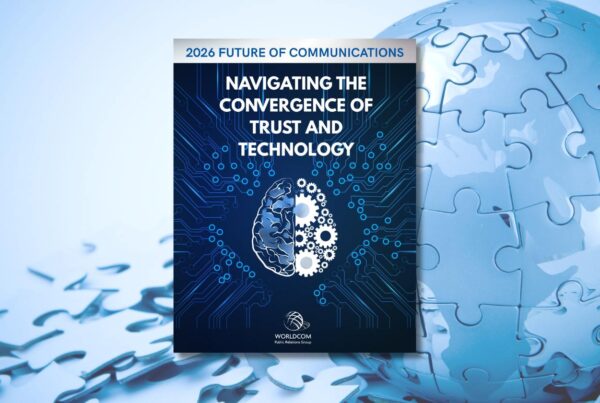Insights from USC Annenberg’s Latest Survey on Corporate Responsibility and the Dynamic Socio-Political Landscape
This article was originally published by The Worldcom Public Relations Group.
In an era where the socio-political landscape continually reshapes the expectations placed on corporate entities, the 2024 USC Annenberg Center for Public Relations Global Communications Report offers invaluable insights. The study encompasses views from PR professionals, business leaders, investors, employees, and consumers, diving deep into the evolving role of corporations in addressing social issues and the intricate impact of the presidential election on corporate communications.
Here are a few key insights from the report:
The Rising Tide of Corporate Activism
The survey highlights the recent surge in corporate activism, a trend significantly bolstered since the racial justice protests of 2020. An array of companies, previously silent on social matters, stepped forward, making public statements in reaction to pressing societal concerns. This shift underscores a broader societal expectation: corporations, with their vast resources and influence, are increasingly seen as pivotal actors in the quest for change.
Navigating Purpose and Polarization
The transition towards ‘purpose’ as a central tenet of corporate identity signifies a new era of stakeholder engagement, with PR professionals leading the charge. However, this journey is complicated by the prevailing winds of polarization, which have notably shifted the societal issues at the forefront of public discourse. Understanding and strategically navigating these divisive terrains is paramount for effective corporate communication.
Understanding Stakeholder Perceptions
An important insight from the survey reveals a disconnect between corporate self-perception and stakeholder reality. Less than half of Americans feel any group adequately addresses social challenges, with significant corporations lagging in popularity. This gap highlights a vital area for improvement: corporations must better communicate their stances and actions to bridge this understanding divide.
The Critical Issues at Hand
The survey highlights the pressing issues stakeholders believe should command corporate attention, including the economy, mental health, and climate change. Stakeholders expect companies to focus on and lead conversations around these pivotal topics, tailoring their stances to reflect public concerns genuinely.
The Strategic Stance
The findings also delve into companies’ nuanced considerations when deciding when to take a public stance. The advice for CEOs is varied, underlining the complexity of responding to social issues amidst a politically charged atmosphere. The influence wielded by different stakeholder groups, particularly in the lead-up to elections, underscores the careful balancing act required in corporate decision-making.
The Election’s Echo
Exploring the election’s implications, the survey suggests an anticipated increase in stakeholder demands for corporate societal engagement, regardless of the election’s outcome. However, opinions on the broader impacts—from the economy’s health to public discourse civility—reflect a deep division, mirroring the nation’s polarized state.
Implications for CMOs: A Blueprint for Action
For Chief Marketing Officers and their teams, the survey’s findings offer a roadmap for navigating the intricate landscape of corporate communications:
Embrace Rising Expectations: Acknowledge and strategically respond to the increasing stakeholder expectations for corporate societal engagement
Bridge the Knowledge Gap: Actively work to close the information gap between corporate positions and stakeholder perceptions, ensuring clear, transparent communication.
Prioritize Stakeholder Concerns: Align corporate focus and resources to address stakeholders’ critical issues, fostering a genuine connection and engagement.
Navigate the Political Landscape: Exercise caution and strategic foresight in stances on contentious issues, especially during election seasons, balancing risk with corporate values and stakeholder expectations.
The USC Annenberg survey presents a clarion call to CMOs and corporate communicators: To thrive in today’s complex socio-political environment, companies must become fluent in the language of their stakeholders. By staying attuned and aligning corporate purpose with societal values, we can navigate corporate activism’s challenging waters with grace and impact.






